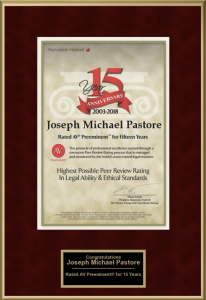With Bitcoin exploding in market value to over $19,000 per coin at the close of 2017, investors are intrigued by the alluring concepts of cryptocurrency, blockchain, and the decision of whether to invest in startup companies utilizing cryptocurrency.[1] Recently, initial coin offerings (ICOs) have been the primary way for cryptocurrency startup companies to raise capital, and most notably, avoid the high costs associated with the traditional initial public offering (IPO). In 2017, over $4 billion was raised through the use of initial coin offerings, and that figure was forecasted to rise significantly.[2] This article will summarize what an initial coin offering is, why it is controversial, and what the near future may hold regarding regulation for this method of raising capital.
What is an Initial Coin Offering?
An initial coin offering is a means for cryptocurrency startup companies to raise capital through crowdfunding. There are two primary reasons to create an initial coin offering: first, to create a new kind of cryptocurrency (different from Bitcoin) that has its own blockchain, or, second, to fund a project that requires a new unique currency to be effective. Most ICOs involve the second type, known as token generation events (TGE). To begin the process of an ICO, the issuing company publishes a whitepaper detailing their company business model, projections, fundraising goals, what type of currency is accepted in the offering, company timelines, and other information to incentivize investors. Upon making the decision to participate in the ICO, investors use cryptocurrency (or fiat currencies like U.S. dollars (hereinafter, “cash”), in some cases) to purchase coins, or “tokens,” from the coin issuing company. Bitcoin is the most commonly used form of cryptocurrency by investors in ICOs. Tokens purchased by the investor do not necessarily represent shares of ownership in the company, but they are similar in varying respects. Technically, they reflect a percentage of the total amount of the initial cryptocurrency produced and can be redeemed or sold on secondary markets for cash value (or Bitcoin) once the issuing company meets its funding benchmarks and launches the venture.
In a nut shell, investors are simply being offered the opportunity to “get in on the ground floor” and purchase coins for a significantly lower price than the coin is projected to reach in the whitepaper. Should the company not meet its funding benchmarks, these tokens are supposed to be refunded for the principle price paid in the currency used by the investor. Ultimately, the decision to invest in an ICO depends on the investor’s prediction on whether the issuing company will successfully attain funding milestones to produce a viable cryptocurrency that will increase in value over time, or at least will be able to return all investments made by the investor should the benchmarks not be reached.
Ethereum is an example of a successful ICO that generated a substantial return on investment for those who participated. Ethereum uses Ether as its cryptocurrency, which was issued in 2014 at $.40 per Ether, translating to roughly $18 million in Bitcoin at the time.[3] Ethereum’s project went live in 2015, and as of today the cryptocurrency trades at $873.72 per Ether, and is the second most successful cryptocurrency to date behind Bitcoin.[4] Returns like Ethereum make headlines across the nation, and are a focal point in driving investors to take a hard look into the “cryptocurrency bubble.”
Securities Regulation of ICOs
ICOs are quite similar to a traditional IPO, save for one major aspect: enforced regulation. On July 25th, the SEC issued its first sweeping statement (a “21(a) Report”) regarding the transfer and sale of digital currency like “tokens” sold in ICOs, declaring that the federal securities laws may apply to ICOs after its investigation into The DAO.[5]
The DAO was a decentralized autonomous organization (“dao”) that used distributed ledger or blockchain technology to operate as a virtual entity, and sold tokens representing interests in the company to investors in exchange for cryptocurrency. In the 21(a) Report, the SEC confirmed that cryptocurrency in the form of tokens or “coins” sold in ICOs can be a security, and that ICO issuers and ICOs may be subject to federal securities regulation law.[6] How these laws will be applied and when further enforcement will go into effect are uncertain at this time, but the signs of SEC movement on the issues of cryptocurrency transactions are present.
At the Senate Committee on Banking, Housing, and Urban Affairs hearing on February 9, 2018, SEC Chairman Jay Clayton was quoted as saying, “You can call it a coin, but if it functions like a security, then it’s a security,” and, most notably, “A note for professionals in these markets: those that engage in semantic gymnastics … are squarely within the crosshairs of our Enforcement Division.”[7] In most types of ICOs listed today, if one were to apply the “Howey test” (from the landmark 1946 U.S. Supreme Court decision that helped clarify what defines an “investment contract,” which itself is part of the definition under the Securities Act of 1933 of a “security”), the tokens offered would most likely be interpreted by the SEC to be securities, in that they are “a contract, transaction or scheme whereby a person invests his money in a common enterprise and is led to expect profits solely from the efforts of the promoter or a third party.”[8]
Clayton’s comments in February echo the sentiments of his statement from December 11, 2017regarding cryptocurrency’s treatment under the Howey test and the 21(a) Report, in which he stated, “In the 21(a) Report, the Commission applied the longstanding securities law principles to demonstrate that a particular token constituted an investment contract and therefore was a security under our federal securities laws. Specifically, we concluded that the token offering represented an investment of money in a common enterprise with a reasonable expectation of profits to be derived from the entrepreneurial or managerial efforts of others.”
Recently, there has been a growing number of public statements from prominent figures regarding online market trading regulation, which indicates a possible regulatory turf war between the SEC and the CTFC. On March 7, 2018, the SEC published a statement detailing considerations both investors and market participants should assess regarding online market exchanges for ICO-based coins and tokens.[9] In addressing investor considerations, the SEC urged investors to utilize national exchanges, broker dealers, or other traditional platforms that are heavily regulated. Specifically, the SEC made it clear that even though many of these online trading markets call themselves “exchanges,” they are, in fact, not as heavily regulated at this present time the same way as traditional national exchanges. Regarding whether or not all online trading exchanges shall be subject to regulation, the SEC states:
“Some online trading platforms may not meet the definition of an exchange under the federal securities laws, but directly or indirectly offer trading or other services related to digital assets that are securities. For example, some platforms offer digital wallet services (to hold or store digital assets) or transact in digital assets that are securities. These and other services offered by platforms may trigger other registration requirements under the federal securities laws, including broker-dealer, transfer agent, or clearing agency registration, among other things. In addition, a platform that offers digital assets that are securities may be participating in the unregistered offer and sale of securities if those securities are not registered or exempt from registration.” (Id.)
This statement suggests that certain circumstances and types of transactions occurring in the online market platforms will determine what kinds of regulation requirements will be enforced, but most importantly, that there will be forthcoming enforcement on a large scale.
The SEC’s statement was issued on the heels of an opinion from the District Court for the Eastern District of New York, which on March 6, 2018 held that the CTFC had standing to bring a lawsuit for fraud and to oversee cryptocurrency (including Bitcoin and the similar Litecoin, but not necessarily including ICO-based coins and tokens), for it is within the plain language definition of a “commodity.”[10] The CTFC initially determined in 2015 that cryptocurrency was a commodity, and this Federal District Court holding strengthens the CTFC’s claim to regulatory jurisdiction over cryptocurrency.
Both the SEC and the CTFC will issue regulations on cryptocurrency, and the turf war over this hot topic will ensue for the foreseeable future as the market for virtual currency continues to grow. On March 14, Congress held its first hearing on ICOs, where “House Financial Services Committee members asked questions about such topics as hacking, use of digital currencies by criminals, defining securities, and protecting investors.”[11] Also of note, the Governor of the Bank of England gave a statement in which he said, “The time has come to hold the crypto asset ecosystem to the same standards as the rest of the financial system. Being part of the financial system brings enormous privileges, but with them great responsibilities…In my view, holding crypto asset exchanges to the same rigorous standards as those that trade securities would address a major underlap in the regulatory approach.”[12]
This regulatory crackdown by the SEC and the CTFC comes as no surprise, as there are numerous market factors that triggered the initial SEC and CFTC investigations and that continue to command the regulators’ attention, including the explosion of token offering companies and investors participating in ICOs, the exponential increase in value of cryptocurrencies, and ICO scams that defraud investors.[13]
ICO Scams Defraud Investors
ICO scams are of particular concern to the SEC, as the underlying premise of the federal securities laws are to protect investors from being deceived, by mandating public companies to file numerous types of disclosures for investor transparency. These scams occur when news spreads that startup cryptocurrency companies forecasting massive growth are preparing to launch an ICO, which prompts scammers into setting up fake website domains and portals that deceive investors. The scammers will utilize social media sites like Facebook and Twitter to quickly capture non-sophisticated investors who are researching the ICO. Once the investor submits their cryptocurrency investment into the scammer’s system, any effort to try and reclaim that investment is futile as it recedes into the dark web.
Telegram is a current example of immense market backlash from scammers hijacking ICO market anticipation. Telegram is hosting a widely anticipated ICO beginning in March, but already has faced a prominent scam that stole millions of dollars worth of cryptocurrency from investors who thought they were buying into Telegram’s ICO. English and Russian versions of the actual whitepaper were leaked, and hosted by these scammer websites, of which Gramtoken.io was the most prominent. Gramtoken.io posted project road maps, copies of the whitepaper, and information regarding the ICO to trick investors into depositing their cryptocurrency into their system. Once Gramtoken.io reached its fundraising goal of $5 million dollars, the website went dark, and the investments through Gramtoken.io cannot be located.
The difficulty in protecting cryptocurrency investments is the driving force behind these scams and is a serious concern for investors. Cryptocurrency transactions are tremendously hard to track for several reasons. First, traditional financial institutions are not involved with cryptocurrency transactions, making traceability of the flow of currency unusual. Second, cryptocurrency transactions are happening on an international scale, which restricts what information the SEC, CFTC and/or other federal and state regulators can compile on the transactions, depending on where the issuing entity is located. Third, there is no central authority or market for cryptocurrency transactions and collection of user information at this time. Finally, law enforcement has no current ability to freeze any cryptocurrency transactions, as cryptocurrency is encrypted and cannot be held by a third-party custodian like a traditional security. Together, these factors significantly impede federal, state and private legal actions and remedies for investors in cryptocurrency transactions.
Celebrity ICO Endorsements and Differing Perspectives
On February 27th, Microsoft founder Bill Gates was asked for his opinion on cryptocurrency during a question and answer session on the popular website Reddit, and responded with, “The main feature of cryptocurrencies is their anonymity. I don’t think this is a good thing. The government’s ability to find money laundering and tax evasion and terrorist funding is a good thing. Right now, cryptocurrencies are used for buying fentanyl and other drugs, so it is a rare technology that has caused deaths in a fairly direct way. I think the speculative wave around ICOs and cryptocurrencies is super risky for those who go long.”[14] Other high-profile individuals have made public statements that appeared to be endorsing specific ICOs, especially pop culture celebrities. Floyd Mayweather, DJ Khaled, Paris Hilton, Jaime Foxx, and other celebrities have made public social media endorsements of a variety of ICOs.[15] These endorsements are problematic and could potentially lead to violations of securities law regarding proper disclosures and solicitations of investors if these celebrities are interpreted to be promoters of the ICO.
Conclusion
Initial coin offerings have become the most prevalent way for cryptocurrency companies to raise capital. With the advent of cryptocurrency (including ICO-based coins and tokens) taking markets by storm, it appears they are here to stay for the foreseeable future as well. The SEC’s statements are clear that securities regulation law will be applied to coins and tokens arising out of ICOs, but numerous investor rights issues regarding traceability, jurisdiction, and lack of central authority over all cryptocurrency render enforcement challenging. While ICOs in their current form are a hot ticket item for now, a massive legal and regulatory overhaul for United States cryptocurrency transactions is undoubtedly in the works.
[1] Coindesk, Bitcoin (USD) Price (last visited Feb. 26, 2018) https://www.coindesk.com/price/
[2] Forbes, ICOs In 2017: From Two Geeks And A Whitepaper To Professional Fundraising Machines (Dec.18, 2017) https://www.forbes.com/sites/outofasia/2017/12/18/icos-in-2017-from-two-geeks-and-a-whitepaper-to-professional-fundraising-machines/#40e99c4e139e
[3] Investopedia, Breaking Down Initial Coin Offerings (ICO) (Feb 26, 2018) https://www.investopedia.com/terms/i/initial-coin-offering-ico.asp
[4] EthereumPrice, Ethereum (USD) Price, (last visited Feb 26, 2018) https://ethereumprice.org/
[5] Divisions of Corporation Finance and Enforcement, Statement by the Divisions of Corporation Finance and Enforcement on the Report of Investigation on The DAO (July 25, 2017) https://www.sec.gov/news/public-statement/corpfin-enforcement-statement-report-investigation-dao
[6] Id.
[7] Joseph Young, SEC Hints at Tighter Regulation for ICOs, Smart Policies for “True Cryptocurrencies”(Feb. 9, 2018) https://cointelegraph.com/news/sec-hints-at-tighter-regulation-for-icos-smart-policies-for-true-cryptocurrencies
[8] “In other words, an investment contract for purposes of the Securities Act means a contract, transaction or scheme whereby a person invests his money in a common enterprise and is led to expect profits solely from the efforts of the promoter or a third party, it being immaterial whether the shares in the enterprise are evidenced by formal certificates or by nominal interests in the physical assets employed in the enterprise.” S.E.C. v. W.J. Howey Co., 328 U.S. 293, 66 S. Ct. 1100, 1104, 90 L. Ed. 1244 (1946)
[9] Divisions of Enforcement and Trading and Markets, Statement on Potentially Unlawful Online Platforms (Mar. 7, 2018) https://www.sec.gov/news/public-statement/enforcement-tm-statement-potentially-unlawful-online-platforms-trading
[10] Brenden Pierson, Virtual currencies are commodities, U.S. judge rules, THOMPSON REUTERS (Mar. 6, 2018) https://www.reuters.com/article/us-usa-cftc-bitcoin/virtual-currencies-are-commodities-u-s-judge-rules-idUSKCN1GI32C
[11] Kia Kokalitcheva, Congress holds first hearing on initial coin offerings, AXIOS (Mar. 14, 2018) https://www.axios.com/crypto-ico-congress-1521059028-8807c852-22de-461a-8c9e-8a8a9f85d452.html
[12] John D’Antona Jr., BoE Push for Cryptocurrency Regulation Can Boost Markets, TRADERS (Mar. 14, 2018) http://www.tradersmagazine.com/news/cryptocurrencies/boe-push-for-cryptocurrency-regulation-can-boost-markets-117387-1.html?ET=tradersmagazine:e3646:1189431a:&st=email
[13] Jon Russell, Scammers are cashing in on Telegram’s upcoming ICO, TECHCRUNCH (Jan. 20, 2018) https://techcrunch.com/2018/01/20/telegram-ico-scammers/
[14] Reddit, I’m Bill Gates, Co-chair of the Bill and Melinda Gates Foundation. Ask Me Anything (Feb. 28, 2018) https://www.reddit.com/r/IAmA/comments/80ow6w/im_bill_gates_cochair_of_the_bill_melinda_gates/
[15] Jonathan Burr, The Bubble in Celebrity Cryptocurrency Endorsements, CBS NEWS (Nov. 6, 2017) https://www.cbsnews.com/news/bitcoin-celebrity-endorsements-cryptocurrency-sec-warning/





